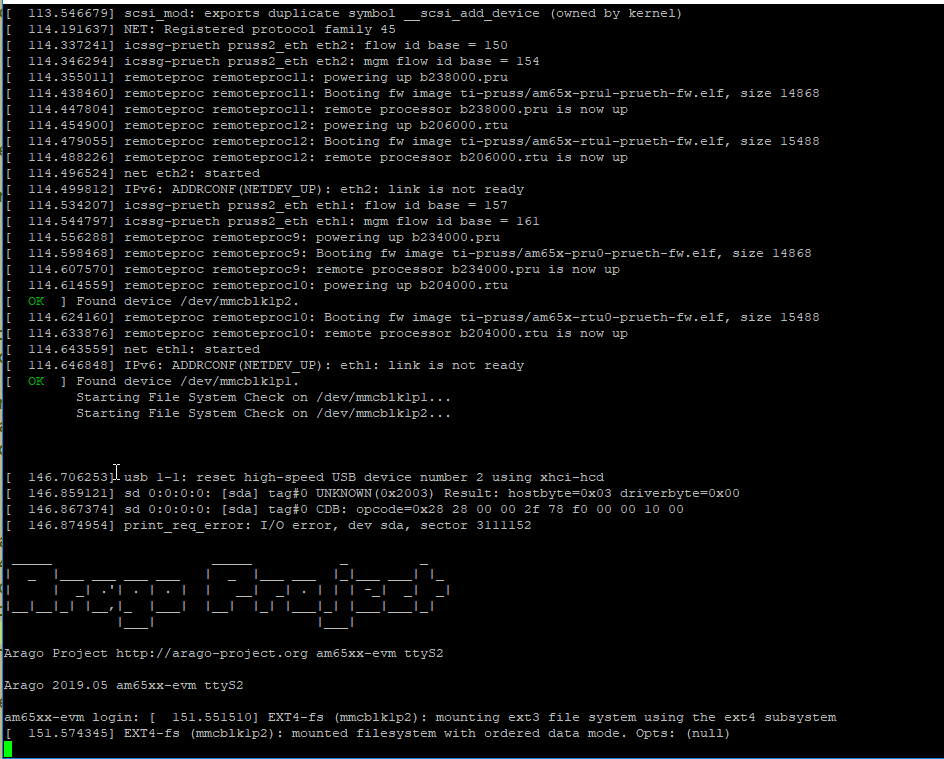Tool/software: Linux
Hi:
We found the following two problems in using EVM boards
Test environment:
Hardware: AM654X EVM PROCESSOR BOARD (REV 1.0), 8G miscro SD card (Panasonic)
Card reader (PISEN, 川宇C396 , TS-RDF9K)
USB-HUB (Standard Microsystems, Realtek Semiconductor, Ithink)
Software: Processor SDK Linux 06_00_00_07
Q1.
In U-boot, the EVM board connects a certain type of USB HUB and inserts the U disk, some of which can not be recognized.
The test topology is as follows. The EVM board has tested three different manufacturers'USB-HUB.
The first and second types of USB-HUB can be recognized normally, while the third type of USB-HUB has three types of USB-HUB that can not be recognized.
Q2.
The kernel starts with USB and loads the kernel from the card reader SD card (using 川宇C396 card reader).
After booting, USB reset prints appear every other time, as shown below.






